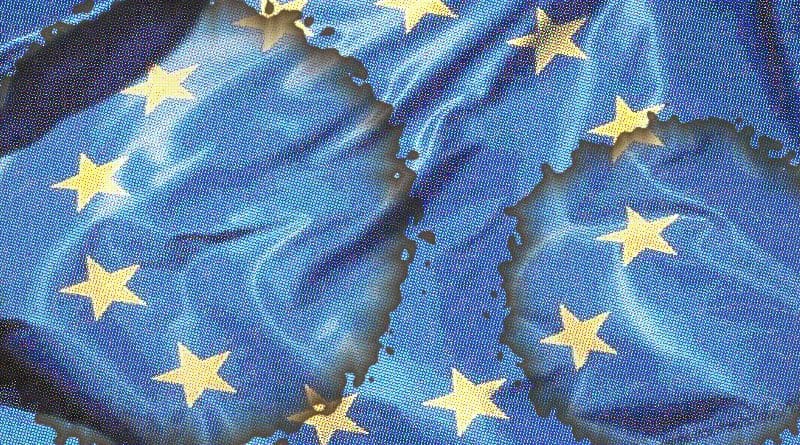Europe And The Lost Opportunity To Become A Great Power – OpEd
By Greg Pence
Contrary to what was imagined, the opportunity of the Ukraine war failed to make Europe a world power, a strategic culture, and at best, made Europe a somewhat more cohesive and powerful auxiliary force for the United States. Therefore, there is no such thing as a European policy towards the Ukraine war, instead, it is the Western policy under the unquestionable leadership of the United States that is being implemented towards this war. This policy aims to tighten sanctions on Russia and arm Ukraine as much as possible.
At the beginning of the Russia-Ukraine war, it was imagined that this war and this urgent threat would eventually make Europe a great power with high military power and strategic culture. The significant increase in the defense costs of European countries and the rhetoric of the French and German authorities were all confirming this claim. Now, more than a year after the start of the war, the European Union and the European countries have failed to carry out fundamental reforms in order to gain the ability to exercise power at the global level and even failed to follow the instructions for the integration of the European defense markets. Therefore, Europe’s security is still dependent on the United States in terms of equipment and logistics. The German government’s delay in sending Leopard tanks to Ukraine is a clear example of dependence.
In fact, Berlin’s concern about the escalation of tension with Moscow had caused the German government to refuse to send these tanks to Kyiv, and even the sending of a tank squadron by Britain to Ukraine could not persuade Germany to do so. However, as soon as the US government announced its decision to send Abrams tanks to Ukraine, Germany followed and sent Leopard to Ukraine. The war between Russia and Ukraine has also exacerbated past mistrust among European countries. In this regard, Central European countries are reducing their defense reliance on Germany and France. Poland, for instance, is attempting to reduce its defense relations and arms contracts with Germany and instead cooperate with South Korea in this field.
As for France, central and eastern European countries believe that France’s insistence on advancing the idea of European strategic autonomy will reduce the U.S. security role in Europe and form French hegemony, which these countries do not see as desirable at all. Germany and France, meanwhile, have lost confidence in their Central and Eastern European partners, and have even called on Washington to rein in Poland’s policy of escalation. The deepening of such a gap in Europe (between Western and Central and Eastern Europe) has made both sides of the continent more dependent on the United States than ever before. The war also strengthens NATO, and any postwar order in Europe depends on Washington’s presence and role, which now focuses mainly on containing China and is pushing ahead with pre-war trends like Quad and I2U2 regardless of Europe’s concerns.
The war between Russia and Ukraine has also made Europe’s economic dependence on China heavier and more obvious. This is happening in a situation where the European economy is facing challenges like increasing energy prices and rare high inflation due to the imposition of heavy sanctions against Russia. The visit of German Chancellor Olaf Schulz to Beijing with a business delegation in the middle of the Ukraine crisis and the continuation of the process of handing over ports in Germany and Europe to China (despite the approval of the order to monitor Chinese investments in Europe by the European Union) show China’s economic importance. It gives for Europe. Also, Europe has been 100 percent dependent on China for the supply of rare earth materials for technology production.
Europe’s third dependence is on Russia, in two areas of energy and energy transition routes. In fact, contrary to the claims of the European countries regarding the management of the energy crisis and the rapid reduction of the energy dependence of the countries of this continent on Russia, Europe, and especially countries like Germany and Italy, still rely heavily on Russian oil and gas, which will not be possible to eliminate anytime soon. Europe has so far managed to contain the energy crisis caused by the Ukraine war thanks to unprecedented LNG imports in recent months and diversification of its energy supply, but for next winter, Europe will face the difficult challenge of filling its own energy reserves (without Russia) and must resort to the volatile gas market and tighten its energy saving policy (the need to reduce the annual demand for gas by 10-15%).
These developments have also created new dependencies for Europe, which countries such as Saudi Arabia and the UAE are using as weapons against Europe.
All in all, the Russia-Ukraine war is a lost opportunity for Europeans. An opportunity that Europe not only failed to use to strengthen its strategic autonomy and become a great power in the new era of great power competition, but also revealed Europe’s security, economic and energy dependencies to the two great powers of the United States and China, and even to a power like Russia. The war has also exacerbated and deepened Europe’s internal divisions, a development that would further obscure the idea of becoming a great power.

